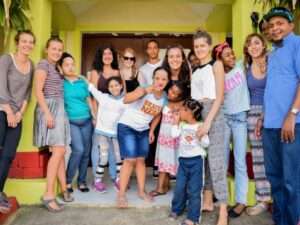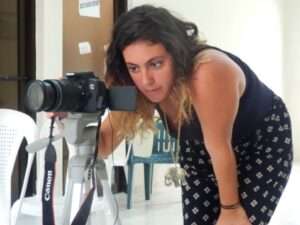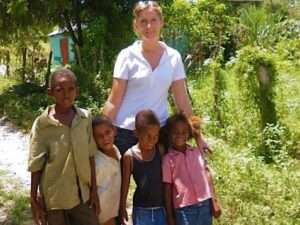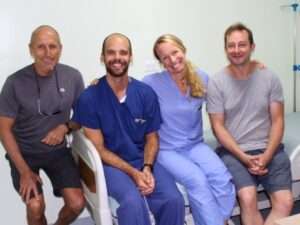1. Is volunteering the right path for me? FAQs
If you would like to work as a volunteer or intern for Aldeas de Paz you should be reliable, flexible, independent and open-minded for personal growth.
Volunteering with us may bring you into unfamiliar territory. This is part of the experience of volunteering and living in another country. You must be ready to face challenges. These may come in the form of cultural or personal differences. You should be able to see the importance in these differences and accept the circumstances as well as the opportunities for change that they present. Volunteers who come to us with an open mind and heart while not expecting too much tend to benefit the most from this unique experience. Our foundation’s long-term goal is to be a multi-faceted point of contact for children and youth. The foundation is still very flexible in many areas. This might be hard for some people, but for others it is a great opportunity to be innovative! While we have our established programs, there are plenty of other opportunities to explore and you should be able to take initiative by yourself.
Also know that whatever difficulties arise, you will always have the support of your fellow volunteers and staff!
Before joining us, we ask you to evaluate the reasons why you want to volunteer. Our organization requires that each person does their work because they believe in the cause and enjoy the cross-cultural experience, not simply because they are seeking recognition from others. Whether you decide to take part in cooperative living or feel that the host family option suits your requirements best, we would ask you to remain focused on the voluntary work that you commit to each week.
As our programs rely on the work of each volunteer, it is essential to have people willing to keep their commitments. Each volunteer will determine a personal work schedule which is always adapted to each person’s interests and is very flexible. However, once this schedule is set, it is essential that each volunteer keeps their word to fulfill their responsibilities.
No! We have worked to create an open, respective and supportive environment concerned with the promotion of respect for people from all backgrounds, religious beliefs, sexual orientations and political views. We do not have any affiliations with any religion, government, corporation or other.
Yes. Assuming that your achievements and commitment for Aldeas de Paz have been consistent, you will get a certificate for your work written in Spanish and English. On demand, we can also issue a placement confirmation in advance.
Of course you can leave earlier. However, our staff will work with you and try to remedy the situation. First, try to find a compromise by changing your program or accommodation. We will do our best to make sure you feel comfortable and to find a solution together. In case you do leave prior to your expected departure, you will not receive a refund.
If you don’t have any Spanish knowledge but are motivated to learn Spanish, you will be able to work in the projects and to make your stay and help at Aldeas de Paz very rewarding. If you really are willing to learn, we recommend staying in contact with local people and don’t hesitate to talk to them even if your Spanish might not be perfect. People here are very friendly and willing to interact and so you should be able to improve your Spanish very soon.
2. Funding
By volunteering with an established organization, you can be reassured that you will be volunteering in a project that needs your help. The money that you pay is what finances the foundation’s humanitarian and development programs and pays for the costs incurred by having you, the volunteer, recruited, hosted and supervised. Unfortunately, we do not have the resources to pay for people’s time, or subsidize travel costs. If we did, then it would of course be more cost-effective to employ local people. We are a verified charity and unlike many volunteer organizations, we are a non-profit organization. The vast majority of our volunteers apply directly via our website, therefore allowing us to keep volunteer costs to a minimum.
Our organization is totally driven by long & short-term volunteer efforts. Our funds are dedicated to financing our programs and fulfilling our mission (see our Spending Page for details). A small part goes to debt payment and administration, while an important part (65%) of the donations is spent on expenses directly related to hosting and supervising our volunteers and providing all necessary services to them.
Once we have agreed with you on the details of your placement, you will receive a confirmation. The written confirmation includes a financial schedule which sets out the details of the calculated volunteer donation and the banking details. The moment we receive your deposit, we are able to make commitments with beneficiaries and suppliers and start preparing for your volunteer placement and securing your accommodation arrangement ahead of your arrival. Due to the fact that we are a small community-based charity with very limited resources, we need the donation deposit to cover certain costs prior to your arrival. See Terms and Conditions for further details.
The national currency of the Dominican Republic is the Dominican Peso. Normal daily personal expenses range between 5 USD and 10 USD. Local restaurants, fruits and vegetables etc. are way cheaper than in the US or Europe, while imported products are more expensive. If you are interested in eating out more often or going out on weekends, these costs will obviously be higher. There are also many interesting natural places to visit in the Dominican Republic. There are ample opportunities to explore the mountains, beaches, waterfalls and jungles. These trips, of course, will cost extra.
3. Living in the Dominican Republic
Try not to come with too many expectations. Recognize that you won’t leave feeling as though you’ve saved the world. It is good to have a provisional preference of the programs you want to participate in. Nevertheless, flexibility is appreciated. Due to the changing needs of our beneficiaries and available resources, programs may change. Give 100% in all you do. Volunteers who put the most in definitely get the most out! Take advantage of the opportunities open to you. You may never have opportunities like these again, so appreciate the moment! At your volunteer work, place show your dedication. Be open to trying new things and learning new skills. Finally, come with patience and a sense of humor.
Yes, there will be a large range of suitable food for you. But you have to consider that there are Dominicans who don’t know the concept of vegetarianism or veganism. So it is possible that you will have some difficulties when you are eating in restaurants (especially if you are vegan) or when you are invited to eat with a Dominican family. If you are living in the volunteer apartments, you can cook on your own and use only the ingredients you want to use. You can find a variety of fresh fruits and vegetables here. It’s also definitely possible to live in host families if you are vegetarian or vegan, but you should not expect very elaborate dishes. Beneath is a short review from one of our former vegan volunteers living in a host family:
“Being vegan while staying with a host family was not a problem for me. I emailed my host parents before my arrival and told them what I do and don’t eat. Once I arrived, I talked to my host mom again about what I don’t eat on a vegan diet. I went to the market and cooked with my host family. I also cooked meals for myself occasionally and almost always ate with my host family. My host family was very accepting and respectful of my choice to not eat animal products.”
No, you will not be able to get everything you want and there is also a lack of variety within the local stores compared with what you might be used to. As the Dominican Republic is part of an island, the costs for imported items can be higher than in your home country. There is a larger supermarket in Las Terrenas that is more like the supermarkets we’re used to from home, and they have more of a selection than the markets in Samaná.
Working Schedule
Our volunteers enjoy an easy going schedule, whereby each volunteer individually decides the amount of hours per week dedicated to volunteer work. A personalized weekly working plan distributes tasks based on necessity and personal preferences. Past volunteers have confirmed the special nature of this arrangement and have enjoyed it tremendously.
Holidays
We encourage volunteers and interns to decide on convenient schedules for the collaboration with coordinators and staff. Projects such as the hospital, tourism, school, marine conservation internship and animal rescue have more structured working hours than multimedia and NGO.
Aldeas de Paz Holidays
Aldeas de Paz programs are ongoing throughout the whole year and you are welcome to join us and work even through summer holidays (June 22 – August 22) and christmas holidays (December 21- January 5, 2020). Volunteers are welcome to celebrate christmas and new year together with us.
Exceptions are: Our Attention Center Mama Elba (Samana) is closed from December 21 until January 5, 2020.
Public Holidays
January 01: New Years Day (Año Nuevo) January 6: Día de los Reyes January 21: Nuestra Señora de la Altagracia January 26: Día del Padre de la patria Duarte February 27: Día de la Independencia nacional April: Good Friday May 1: Día del Trabajo June: Corpus Christi August 16: Día de la Restauración September 24: Nuestra Señora de la Mercedes November 6: Día de la constitución December 25: Christmas (Navidad)
There are many options available for you to maintain contact with your family. There is free WiFi provided in all our foundation’s facilities! You can also easily purchase a Dominican phone card with data connection. If you are planning on receiving packages while you are here, please take notice that it takes from about one week to a few months to ship from North America or Europe to the Dominican Republic. We advise hiring private couriers for speedy and secure delivery. (FEDEX, DHL, etc).
Members of the European Union, Canadians and US citizens as well as many other nationalities don’t need any entry visa! Volunteers are tourists. Each Tourist (as a volunteer or intern you are a tourist!) traveling to the Dominican Republic is required to fulfill correctly the information on the electronic ticket for the General Directorate of Migration. After entering the data, you will receive a QR code that has to be presented already at the airline check-in in your country. The online form can be filled out 72 hours before the flight. Please note that when leaving the country, you also need to fill out this online form and present it at check-in.
Please click here before you take your flight and fill out the form to receive your personal QR code: eticket.migracion.gob.do
This form allows for an initial stay of 30 days in the country. If you stay longer, you can extend your stay by paying an additional fee for every additional month to remain in the country. This additional fee will be charged at the airport on the day of your departure, without problems. So you can re-enter the DR without any difficulty despite overstay.
Time Fee
1 to 3 months: 2,500 Pesos
3 to 9 months: 4,000 Pesos
9 to 12 months: 5,000 Pesos
12 to 18 months: 6,500 Pesos
Additional information
The airline requires an exit ticket at check-in. In this case, a return ticket or onward ticket with flexible date changes is a good option.
Wiki Travel Info Dominican Republic
Wiki Travel Info Samana
Wiki Travel Info Las Terrenas
The Volunteer Guesthouse apartments and the Host Family home meet Dominican middle class standards. Therefore, you can expect a clean and simple room and fully equipped kitchen and bath rooms. Kitchens have gas stoves and a fridges. Each apartment also has free WiFi and access to a washing machine. The DR has electricity with a current running similar to that in the United States (110 volts, 60 cycles), but short power outages are common. All our guesthouses have running water and European style bath rooms and toilets. (Many Dominican communities, however, do not even have tap water in their homes. Rural families, for example, often have to walk to the nearest river or other source for household water.) The different Guesthouses apartments, Host Family homes as well as the office are within walking distance (about 10 minutes), so that the volunteers can visit each other easily. All accommodations are very conveniently and safely located in the center of Samana and Las Terrenas and within walking distance to the school, the hospital, the supermarket, the beaches and the Malecón (waterfront walking promenade). Read on here!
4. My arrival
DOWNLOAD “Welcome Volunteer Guideline”
It contains all the information you need about your arrival, stay and departure in the Dominican Republic. A packing list is also included in the guideline. We will send you general information packets and vocabulary lists for your respective program as well.
The information we need to receive from you would be your complete travel information, exact date and time of arrival, flight number, port of departure, an image or copy of your passport, insurance card and immunizations. Always feel free to contact us if you have any questions. For more information about arrival at the airport, please have a look at “How to get here.”

 Deutsch
Deutsch




